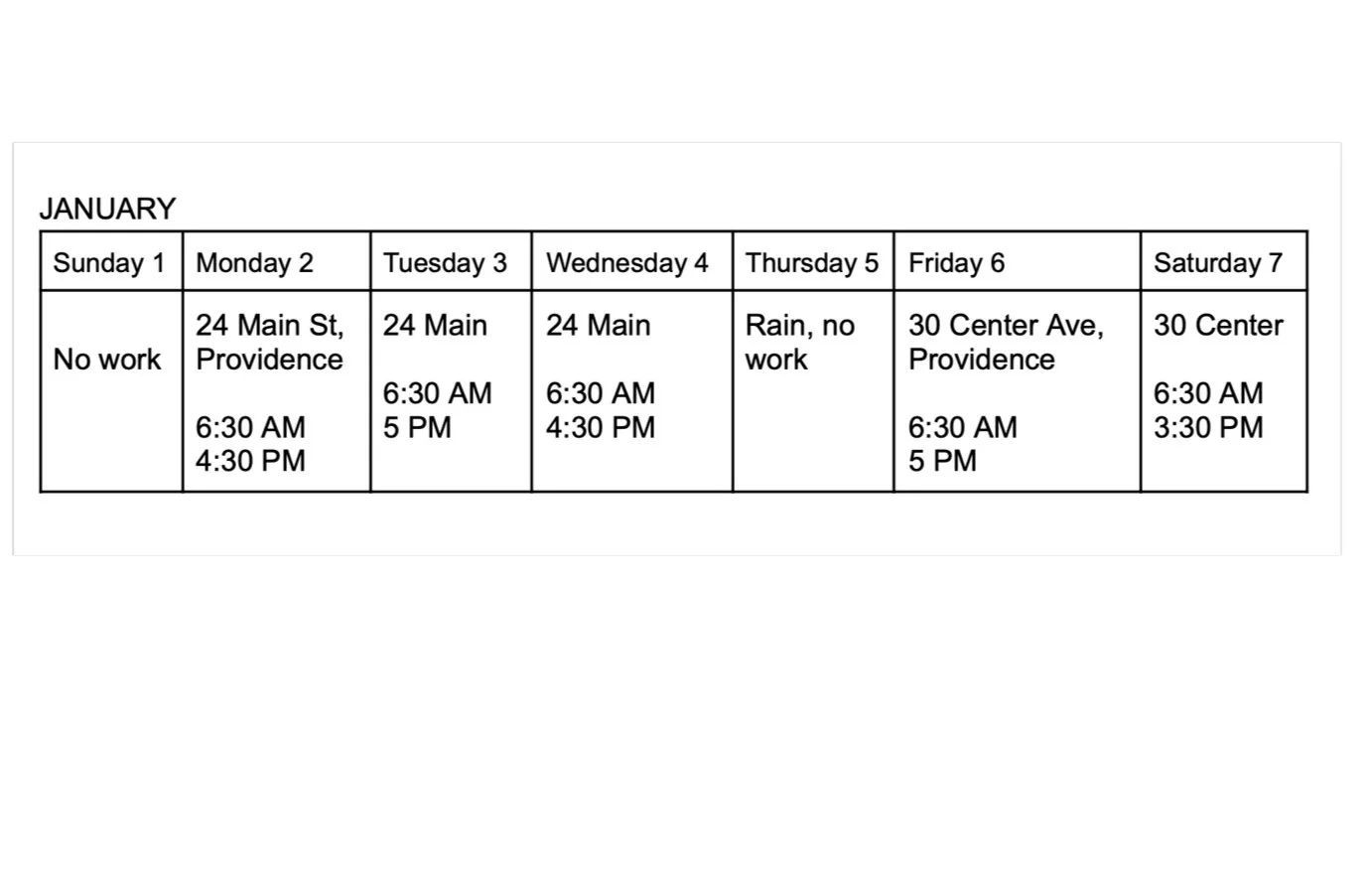As we kick off the new year, lots of places give away pocket-sized paper calendars with their logos–banks, churches, tax and insurance offices, and stores. They are also easy to find in your local dollar store or corner bodega. With the popularity of smartphones with built in calendars, they’re not as popular as they used to be, but these pocket calendars can be a powerful tool to help you recover stolen wages.
Fuerza Laboral’s first and longest-running campaign has been the fight against wage theft, and it is the most common labor abuse by far for which people come to us for help. We submit hundreds of wage theft complaints to the RI Department of Labor and Training and the US Department of Labor. The hardest thing about filing a complaint is when the worker doesn’t have a good record of their hours worked–both regular and overtime.
The flip side of this is that employers who commit wage theft frequently don’t keep good records either. If they did keep records while stealing wages, the numbers just wouldn’t add up. We can use this to our advantage.
If the employer doesn’t have reliable wage and hour records and a worker does, the worker’s record is taken as fact in a wage theft case. Taking just 30 seconds at the end of each work day to note your hours worked is all it takes to create this record.
What you should keep track of:
Each day, write down three things on your calendar:
The worksite address and city (if your worksite changes),
The time you started work,
The time you ended work.
It will look something like this:
Make sure to also document:
The first and last name of your employer
The phone or cell number of the employer
Name and address of the company or temp agency that gives you a work assignment.
The US Department of Labor suggests keeping track of your breaks, but if this extra bit of documentation is enough to discourage you from keeping your daily record, don’t worry about it. It’s extremely unlikely your supervisor is going to let you take a break that’s longer than your legal minimum break time when you are a wage worker.
The time you spend driving or getting transportation from your house to work and back home does not count towards your hourly wages, but any time you spend driving or being transported between worksites, or from the office/garage you report to at the beginning of the day to a worksite, counts as working time.
Ultimately, our power as workers comes from our solidarity with each other, from our willingness to stand up for and with each other in the face of injustice, and to be part of organizations which help us build our collective power. This includes worker centers like Fuerza Laboral, forming or joining a union, or launching a worker-owned cooperative. If you are experiencing injustice on the job and want to learn how to organize with your coworkers, or how to start a co-op and own the fruits of your labor, contact us.
But keeping a written record in a calendar can be a key tool in helping you recover stolen wages if you experience wage theft.

